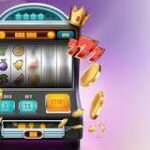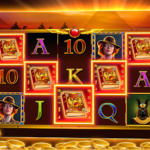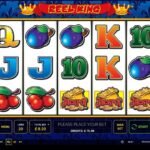Understanding Early Childhood Development

Early childhood development (ECD) is a dynamic and rapid period of growth that encompasses the first five years of a child’s life. During this time, the brain develops at an astonishing rate, with more than 1 million new neural connections forming every second. This phase lays the groundwork for future learning, behavior, and health.
Key Milestones in Early Childhood Development
To appreciate the significance of ECD, it’s important to recognize the key developmental milestones:
- Cognitive Development: By the age of three, a child’s brain has reached 80% of its adult size. Cognitive abilities such as memory, problem-solving, and language skills begin to flourish. By age five, children typically have a vocabulary of about 2,500 words and can form complex sentences.
- Motor Skills: Between ages one and two, children start walking and gain fine motor skills such as picking up objects and using utensils. By age five, they can perform more complex tasks like drawing shapes and dressing themselves.
- Social and Emotional Development: Children begin to develop empathy and understand social norms. By age three, they start to engage in cooperative play, and by age five, they can form friendships and understand others’ feelings.
The Role of Quality Early Childhood Education
Research has shown that high-quality early childhood education (ECE) programs have lasting benefits. According to a 2016 study by the National Institute for Early Education Research, children who attend high-quality preschool programs are more likely to excel in school, graduate high school, and earn higher wages. Moreover, a report by the World Bank in 2018 highlighted that investing in ECE yields significant economic returns, with a benefit-cost ratio ranging from 4 to 17.
A stimulating learning environment is essential for promoting early childhood development. This includes providing age-appropriate educational materials, engaging activities, and opportunities for social interaction. Play-based learning, in particular, is a powerful tool in early education, allowing children to develop problem-solving skills, creativity, and social competence in a natural and enjoyable manner. For more insights about examination skill, click here.
Research has consistently shown that experiences in the early years have profound effects on the architecture of the developing brain. Positive interactions, nurturing relationships, and engaging activities contribute significantly to cognitive and emotional growth. During this period, children learn to explore their surroundings, interact with peers, and develop a sense of self. The role of caregivers in fostering a supportive and enriching environment cannot be overstated.
High-quality early childhood education (ECE) programs are instrumental in providing children with a strong start. These programs offer structured, yet flexible environments where children can explore, learn, and grow. Key components of high-quality ECE programs include:
- Qualified Educators: Well-trained teachers who understand child development and are equipped to provide a nurturing and stimulating environment.
- Engaging Curriculum: A balanced mix of academic learning and play-based activities that promote all areas of development, including cognitive, social, emotional, and physical skills.
- Parental Involvement: Encouraging parents to participate in their child’s learning process to reinforce learning at home and foster a strong home-school connection.
Supporting Early Childhood Development
In the realm of early childhood education, resources that cater to the diverse needs of young learners and their educators are invaluable. Twinkl Hong Kong offers a wide array of resources designed to support early childhood development. From interactive lesson plans to engaging worksheets, Twinkl provides tools that help create a rich learning environment for children.
- Comprehensive Curriculum Coverage: Twinkl provides resources that cover all areas of early childhood development, including literacy, numeracy, science, and social skills. This ensures a holistic approach to learning.
- Localized Resources: Twinkl Hong Kong tailors its materials to the local context, making them relevant and engaging for Hong Kong’s young learners. This includes bilingual resources that help children develop language skills in both Chinese and English.
- Support for Educators and Parents: Twinkl offers a wealth of resources for teachers and parents. For educators, there are detailed lesson plans, classroom management tools, and professional development resources. For parents, Twinkl provides activities and guides to support home learning.
For example, their Early Years Foundation Stage (EYFS) resources are designed to align with the developmental stages of children aged 0-5, covering key areas such as communication and language, physical development, and personal, social, and emotional development.
As a conclusion, early childhood development is a crucial phase that shapes a child’s future. Providing high-quality educational resources and environments can significantly enhance cognitive, motor, and social-emotional growth.














































